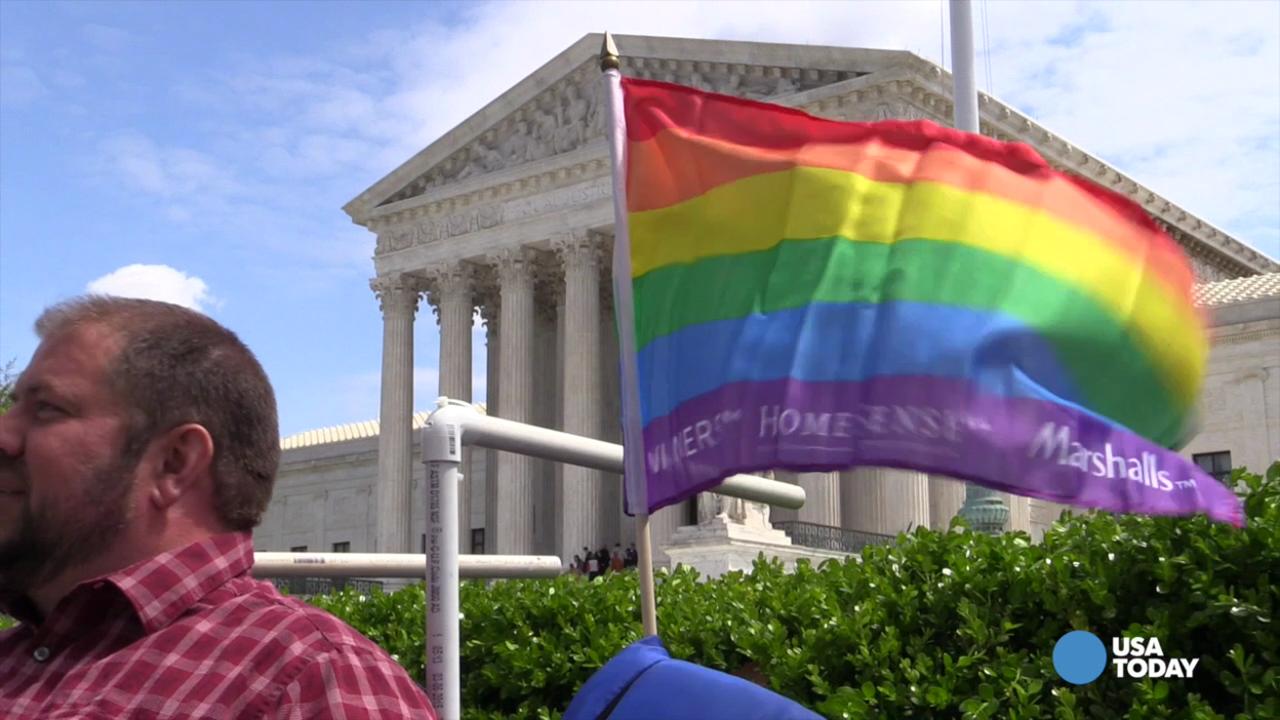Line sitters, activists keep it civil before high court's gay marriage case

WASHINGTON -- Proximity didn't breed animosity in the lines for seats at Tuesday's gay marriage arguments at the Supreme Court, despite days and nights of rain and cold.
In fact, even an apparent argument Monday between gay rights advocate Kathleen Perrin and Monsoor Ali, who was holding a place in the lawyer's line, was just an exchange of ideas, the unlikely pair said.
Ali, who lives in Washington, D.C., said sitting and sleeping in the line for days had made him rethink some of his positions on issues related to gay marriage. He came from a "religious background," growing up in a house that went to mosque and church and was united by the belief that marriage was supposed to be between a man and a woman.
Ali never graduated from community college and works odd jobs, but dazzled Perrin with his intellect. He was mulling what effect, if any, gay marriage might have on heterosexuals' rights.
"Speaking with her challenged me to reevaluate my view on this," says Ali.
Rick Grogan, a mild-mannered pastor from Texas who preaches in Los Angeles, was lounging with a Bible amidst gay right activists. He quoted the Bible calling homosexuality an "abomination of God"; he said he was getting along just fine with the gays around him. They nodded in agreement.
Line sitting is big business in Washington, D.C., and this case is about as big as it gets. Line sitters expected their services for Tuesday's case could fetch up from $500 to $2,000 from a well-heeled lawyer, according to several people who do this for a living. Spots at really hot congressional hearings, such as over net neutrality or the BP oil spill, can also be lucrative, said Ali, who also produces music and is a children and homeless rights activist.
Depending on when you plunked down your lawn chair and sleeping bag, that could be better or not as good as the $10-$15 an hour line sitters say they get from the companies that are charging lawyers and others up to $50 an hour for their services.
There will be 105 seats in the lawyer's section of the court Tuesday and 30 seats in the public section that rotate every 3-5 minutes. Those waiting in the public line expect at least 50 people will be able to get in for the entire arguments. Grogan, who is 57th in line, is resigned to the reality that a few minutes may be all he gets, but he heard 67 people got in for one big case.
Those in the non-lawyer line started queuing up early Friday, while the lawyer's line formed on Saturday. No actual lawyers were spotted. Rather, it largely appeared to be a collection of students, homeless people and others looking to make not-so-easy money.
One young graduate student who was holding the first spot in line for a friend was warned not to talk to reporters by a much-older man who said he has been line sitting for 20 years. The woman who was first in the lawyer's line did not want to be quoted or to be on camera as she feared her family in a wealthy D.C. suburb or her boss might see her.
Others were more than happy to be seen and quoted.
American University students Anna Walsh and Mike Caballero sat a few spots ahead of Grogan. Cabellero said most people grow up assuming they'll get married someday, so he's there because the case "makes or breaks whether i'll be able to get married" seeing he's gay.
Says Perrin: "This is the civil rights issue of our time."